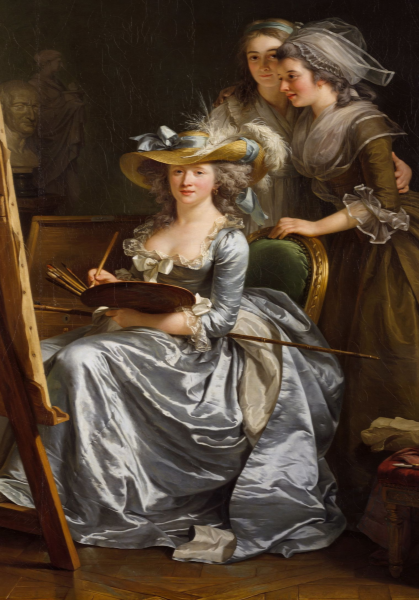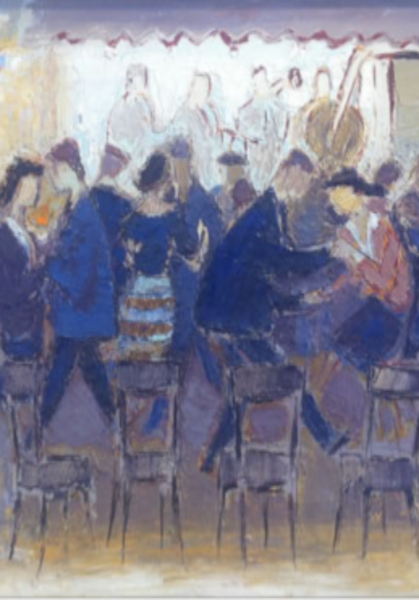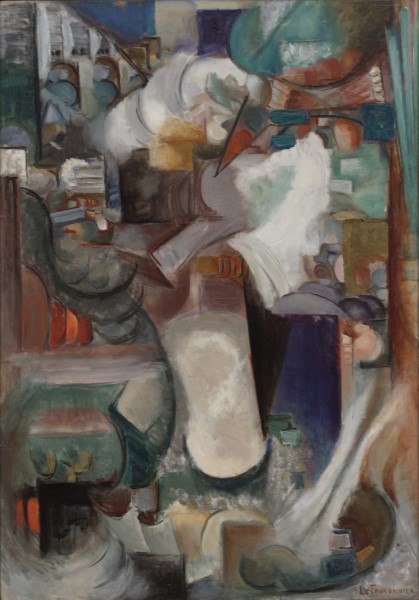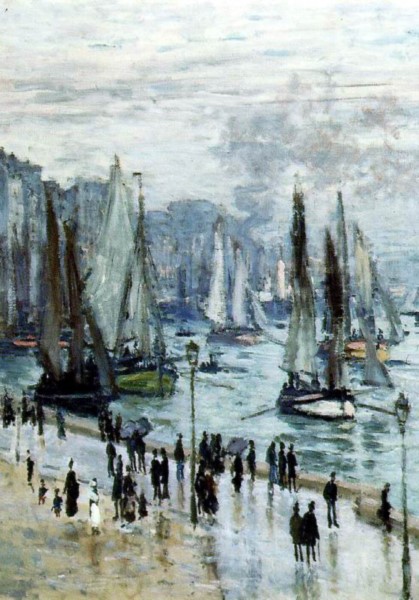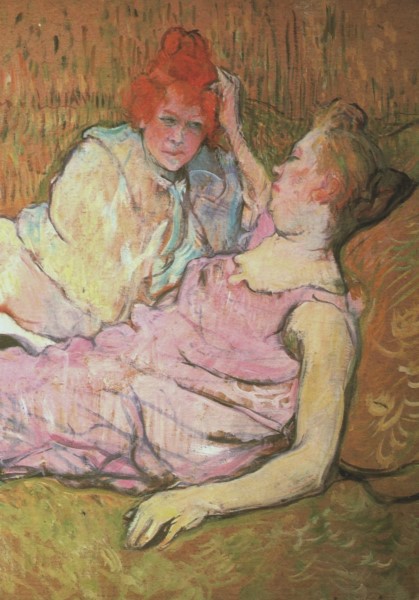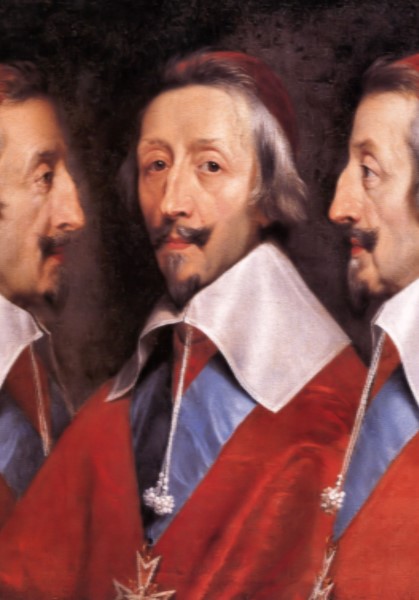Isser Woloch, Columbia University
The second panelist in our Napoleon Forum is Isser Woloch, Moore Collegiate Professor of History at Columbia University. Dr. Woloch’s publications include The French Veteran from the Revolution to the Restoration (Chapel Hill, NC: Univ. of North Carolina Press, 1979) and The New Regime: Transformations of the French Civic Order, 1789-1820s (New York: W.W. Norton, 1994). Next fall will appear his new work Napoleon and His Collaborators (New York: W.W. Norton, 2000).
___________________________________________________________________________
Brumaire, we must always remember, was launched by several dozen disaffected moderate politicians from within the Directory regime. They plotted to overthrow their own constitution because they believed the republic to be in imminent danger of collapse: threatened by a deteriorating diplomatic and military situation; beset by bitter factionalism and localized brigandage; destabilized by annual elections whose wide swings left no one feeling secure; soured by unconstitutional purges two years in a row; immobilized by governmental institutions that often produced stalemate in making policy and weakness in implementing it. Making their task easier, the French republic lacked a tradition of constitutional sacrality.
In 1795 the Directory was supposed to turn a new page with a general amnesty and a moderate, centrist politics, but it could not put the genie back in the bottle. As Voltairians for the most part, the directorial centrists themselves were decidedly radical and at odds with most French citizens when it came to religion, as in their coercive campaign to re-impose the republican calendar on a resistant population. Their purge of the right in Fructidor 1797 was a massive shock to the republic’s integrity. Their repeated bludgeoning of the left likewise violated the constitution but never subdued that energetic minority, although ironically it led the Neo-Jacobins by 1799 to become the primary supporters of the (anti-Jacobin) constitution of 1795, which at least gave them some breathing room. In all this the Brumaire cabal saw the basic gains of the Revolution imperiled and time running out. This was their rationalization before, during and after the coup.
In assessing the Brumaire coup and the subsequent Napoleonic experience it is of course irresistible to ask: was it necessary? Was the Directory really such a failure, so politically bankrupt? This is probably a good question to avoid. We cannot extrapolate and rate the Directory’s performance had it been allowed to survive. We cannot assume, for example, that electoral politics would have matured sufficiently in its mechanisms or levels of participation to provide a surer foundation for representative government. Or that parliamentary politics would have evolved toward the formation of a majority bloc and a loyal opposition, which might have enhanced its stability and effectiveness.
In the event, Brumaire was neither a simple parliamentary coup nor a military coup, but a joint venture between the veteran revolutionaries who initiated it and an ambitious general recruited to be their preemptive “sword.” There is room for argument over whether the scenario for 18-19 Brumaire might have collapsed in the face of opposition by infuriated deputies in the Council of 500, thus making the “necessity” of Brumaire (let alone of the Napoleonic dictatorship) seem dubious. All we can say is that their resistance remained ineffective up until Bonaparte’s soldiers cleared the hall (contrary to plan) and brought it to an abrupt end.
The next irresistible question is how, like someone walking behind you through a revolving door who exits in front of you, general Bonaparte emerged from the provisional government of Brumaire as the head of state with an unprecedented array of powers, while Sieyès effectively retired to the country, leaving his followers to become Bonaparte’s pliant collaborators. Could it be that the general’s constitutional ideas had a more coherent or realistic fit with the objectives of the “revisionist” politicians than the more convoluted and wistful notions of Sieyès?[1]
The revisionists assuredly endorsed Bonaparte’s intention to depoliticize France. True, they expected an experienced, cooptive oligarchy to rule the country without the bother of elections or local autonomy, with a strong executive acting as their surrogate. They did not imagine that a first consul or emperor would dominate everything and gradually create a dictatorship. But that result could be palatable to them because Bonaparte did promote the pacification that they craved. As I will argue in my forthcoming book, the Consulate from its inception set out to heal the great rift of Fructidor. The targets of the purge and deportations of 1797 of course played no role in bringing Bonaparte to power, but he in turn did a great deal for many of them. If one observed the Council of State (the hub of the new government) a year after Brumaire, it would seem as if Fructidor had never occurred; the same was true, if less dramatically, in the Senate and elsewhere. To be sure, Bonaparte did not abandon the revolutionary tradition of “unity by partition” (in Furet’s phrase). Before the ink on its proclamations had dried, the provisional government ejected the outspoken Neo-Jacobins of 19 Brumaire from any future positions; but in general the regime’s patronage extended in many directions.
In the provinces, depoliticization and reconciliation hinged on the prefects who were not always the non-partisan paragons that the Consulate ostensibly desired. A kind of low-intensity warfare smoldered in many localities for the duration of the Napoleonic era and after, but for the most part it remained latent and contained. Mollien’s astute comment about Napoleon’s high-level servitors may have been true of politically conscious individuals all across France: “they were astonished to regain a kind of security that they had not known when they themselves governed” during the 1790s.[2] The most daunting challenge was to pacify the combustible borderland between the purchasers of biens nationaux and the returning emigrés who had been dispossessed. (The painstaking labors of the Bureau des Contentieux des Domaines, under the consummate Napoleonic collaborator, Boulay de la Meurthe, made a crucial contribution to this effort.)
With conciliation, however, came repression. “Public liberty” always figured among the basic gains of the Revolution that the regime was supposed to uphold (as enumerated, for example, in the Senate’s manifesto endorsing the elevation of Napoleon to hereditary emperor.) At best this was wishful thinking, belied by the brutal deportation of “terrorists” in Nivôse IX (after the royalist’s near miss in assassinating the first consul with a huge bomb); the muzzling of the Tribunate; the subjugation of a once freewheeling newspaper press; the re-imposition of book censorship; and the routine use of preventive detention not only for political dissidents or hotheads but for acquitted common criminals deemed to be dangerous. On most of these issues one can recover faint residues of discomfort and occasional objections among the liberal collaborators (the “men of the Revolution” in Napoleon’s regime), which produced little more than symbolic gestures, perhaps, but helped them maintain the semblance of a clear conscience.
Unambiguously, however, Napoleon guaranteed the Revolution’s clearing away of the old-regime’s detritus, and enthusiastically embraced its modernizing vision — the National Assembly’s project to integrate France, to forge a unified national state, where laws, civil equality, civic obligations and public services would be uniform across the land, in all regions and from the largest metropolis to the smallest villages. (That a deeply unpopular military conscription would emerge as the regime’s foremost civic obligation stands as an obvious but cruel irony in this drama.)
A Word on the State of the Field: Turning from such interpretive issues, what opportunities for further study are offered by the Napoleonic era? We have dependable and in some cases sufficient scholarship on such fundamental subjects as the local Napoleonic notables, the imperial nobility, the governing “organs” (as the Soviets used to say), the marshals, the prefects, certain cultural institutions, the civil code, and conscription (although on this last subject much clearly remains to be done). But there are many blank spaces and question marks specific to the Napoleonic experience. Here is a small, idiosyncratic sample:
- The militarization of French/European society (e.g. civil-military relations; the hold of military values and ambition in the population at large; the dynamics of ambition within the officer corps; and the likely discontinuity of ambition after 1815.)
- Cultural atrophy, especially in literature and thought (and other arts and science as well?)
- The “view” of Napoleon by the various couches of French and European society; and the reception, so to speak of the growing cult of personality.
- Family strategies and nepotism among the elites (the historian as Balzac).
- Finally, I have always been puzzled by the apparent absence of an insistent public clamor for peace, that is, the lack (to use an anachronism) of any “peace movement” in the later Empire. Is it worth trying to explain such a negative? Or locating the exceptions to that impression?
NOTES:
[1] I have wrestled with the aforementioned questions in my forthcoming book, Napoleon and his Collaborators (W.W. Norton, Fall 2000), chap 1. On this last issue see Paul Bastid, Sieyès et sa pensée (1970 edn.), 249-58 and especially Marcel Gauchet, La Révolution des pouvoirs: la souveraineté, le peuple et la représentation, 1789-1799 (1995), part III.
Copyright 1999, H-France and Isser Woloch





